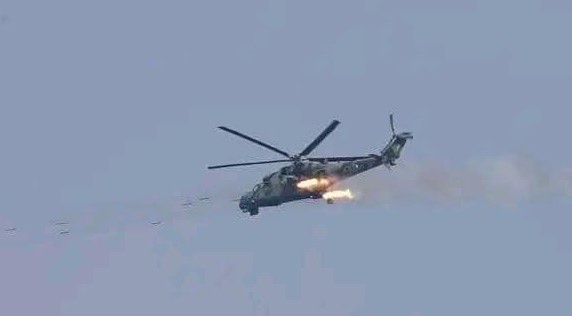The remote county of Fangak, nestled in the northern part of Jonglei State, has been a scene of intermittent clashes for months, with the civil population bearing the full brunt of escalating violence.
The security situation has been fragile in parts of South Sudan since mid-February. It all started with SSPDF forces stationed in Nasir and the White Army, a grouping of armed Nuer youths the government alleges is linked to First Vice President Riek Machar and his SPLA-IO, engaging in intermittent fighting. On 4 March, the violence escalated with the White Army taking control of Nasir Town. Later, on 7 March, a UN evacuation mission came under fire, resulting in the death of SSPDF Nasir garrison commander Lt. Gen. David Majur Dak and his bodyguards. A UN staffer was also killed in the attack.
In a move that deepened the already dire situation, the country’s National Security Services (NSS) embarked on arrest campaigns targeting senior officials with Riek Machar’s Sudan People’s Liberation Movement/Army-in-Opposition (SPLM/A-IO). Among those senior officials arrested were National Petroleum Minister Puot Kang and Gen. Duop Lam, who also serves as SPLA-IO’s Chief of Staff.
With the political and security unrest, now entering its fourth month, the violence is not only escalating, but spreading, with the humanitarian situation getting dire.
In the hard-to-reach Fangak, several residents on Wednesday told Radio Tamazuj that they are stranded and caught up in the war amidst a dire humanitarian crisis.
“As we speak, a military Antonov is hovering overhead in our hideouts in the bushes. I think this is in response to the fighting between the SSPDF forces and local youth in Wei-Muon area early this morning,” Gabriel Nying Gatluak, a Fangak resident, disclosed. “I fled Wei-Muon four days ago, and now we are in the bushes. This, after seven people were killed, including two children, by airstrikes.”
“We are about 2,000 to 3,000 under trees without food, medicine, or shelter,” he added, saying their situation is dire.
Another resident, Nyikong Tai, said they have been relying on aquatic plants for food since fleeing their homes.
“Children, women, and the elderly have been here for a week with no food or medicines. We rely on aquatic plants as food. It rained on us last night because we have no shelter and our children are suffering,” she lamented. “I have been here for 8 days. We fled with no clothes or food. We want food, but instead we are seeing helicopter gunships hovering over our heads. When these gunships come, we run under trees.”
For Goanar Nyilony, a 14-year-old student, the violence and resultant displacement mean no school. He decried the situation and appealed for peace and better services.
“We are suffering under trees instead of being in class, yet I just finished my primary education with a score of 412,” he stated. “Our situation is very bad; no food, medicines, or blankets, while it keeps raining on us. We want peace to come.”
For his part, Michael Bol Gatdor, a lawmaker representing Fangak in the Jonglei State Legislative Assembly, said fighting has been ongoing in Fangak since the beginning of the month, and the civil population is trapped in the war without basic services.
“Fangak is now a scene of fighting and air raids, and civilians are suffering,” he lamented. “We request that the fighting stop and appeal for aid intervention.”




